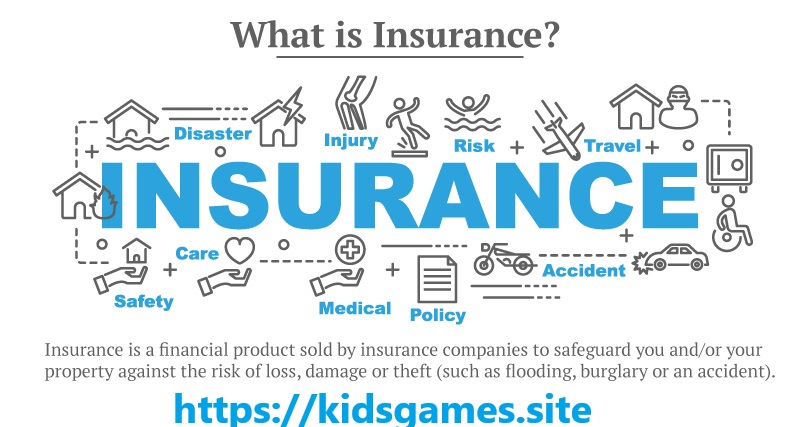Intro
If you are buying insurance for the first time or switching on insurer to another, it is not an easy task. There are so many options out there that it is important for you to know what you are getting into along with the level of protection you need, without paying a price or prices not necessary. Insurance is a financial safety umbrella that offers protection against unexpected costs, but finding an ideal plan takes some thought and discriminating process. This insurance comparison guide offers some of the top tips to find an insurance policy matching your requirements and eases you off using hosting platforms for making your type of search.
Types of Insurance in Simple Terms
That said, insurance comes in many varieties, all designed to protect against distinctive risks. Health, life, auto, home and business insurance are some of the most common. Health insurance can help paying for medical costs so that you may receive care as per your needs without any effect on your personal finances. When you die, your life insurance pays out the sum that you agreed on at the beginning of your policy to your beneficiary or beneficiaries, helping them to cover some of their key expenses in what is likely a difficult time.
Auto insurance provides coverage against vehicle-related damages and liabilities, paying for accidents, thefts, etc. Home Insurance, such as items and appliances in your home that might get destroyed due to fires, storms or theft; Included among this type of protection is business insurance, which will protect you from certain financial risks related to your operational practices, covering everything from property damage to liability claims.
Different types of insurance are designed to serve different purposes, and it is important that you understand these differences when shopping for policies which will suit your unique needs. The scope of health insurance can range from basic to comprehensive, depending on the policy you choose. Life insurance policies are two types based on their duration i.e. term-based or whole-life, and provide varying levels of security and investment opportunities.
Liability, collision and comprehensive coverage are typically included with but not limited to auto insurance policies, each designed to address different aspects of vehicle protection. While home insurance policies typically include coverage for the dwelling, personal property and liability; business coverages can be custom-tailored to reflect a businesses nuanced industry risks. Knowing these differences will aid you in getting a policy that is right for your situation.
Assessing Your Insurance Needs
Assessing your insurance needs requires a thorough evaluation of various personal factors. Start by examining your lifestyle and financial situation. If you own a home, home insurance is essential to protect your investment. For those with dependents, life insurance can provide crucial financial security for your loved ones. Car owners should prioritize auto insurance to safeguard against potential vehicle-related expenses.
Consider the specific risks you face in your daily life. For example, if you frequently travel for work, you might need additional coverage for travel-related risks. Business owners should assess their operational risks and look into business insurance to protect against potential liabilities and property damage.

Evaluate your assets and how their loss or damage would impact your financial stability. Ensure you have adequate coverage to replace or repair valuable possessions. Additionally, think about your health and medical needs. If you have chronic conditions or require regular medical care, comprehensive health insurance is vital.
Balancing the level of coverage with affordability is crucial. You don’t want to over-insure and pay excessively high premiums, but under-insuring can leave you vulnerable. Consider what coverage limits and deductibles you can comfortably afford. By carefully assessing your insurance needs, you can create a tailored plan that offers both protection and value.
Comparing Insurance Providers
Take a closer look at the financial stability and ratings of insurance companies. Fraud in this sense might help lower prices for some individuals, but it also means that common goods and services might be denied to someone of less means since fraud can cripple a company, meaning those who commit said fraud are prevented from paying out any claims. In plain words, customer reviews tell you how reliable and good service they offer.
Ask friends and family who have good experiences for referrals As much as the cost is justified, do not put it above all. Make sure your provider offers substantial coverage options and has a good track record of processing claims. Remember so much of the customer satisfaction you experience will be down to the customer service. In addition, some insurers may provide bundling discounts when you buy more than one type of insurance from them find out. Some online resources will help you to make an educated decision by offering comparison tools and reviews.
Understanding Policy Terms And Conditions
Insurance agreements are dense, typically containing myriad legal jargon which you are not expected to comprehend. This is why you should carefully read through all the terms and conditions to understand what exactly your insurance covers. Be sure to read the coverage limits carefully so you know how much your insurance company will pay for a covered loss. Another important factor for insurance is deductibles, an example by which the expense of you have to cover prior to your insurance starts being employed.
The exclusions are just as important, the situations or circumstances when the policy will NOT pay a benefit. Knowing what is excluded can save you an unpleasant surprise at the time of a claim. These define how much you would be required to pay and when, i.e., a monthly or quarterly or yearly basis. You will also want to know policies regarding renewals and cancellation.
If you come across anything at any point in the document that is unclear, ask the provider for more details If there is ever a lack of clarity about your policy, ask questions. In many cases, policies may contain endorsements or riders changes that could further limit (or expand) coverage. Remember to understand these additions too.
By doing this you will significantly minimize the possibility to fall into a pitfall later on, so take a moment to comprehend your terms.
Using Free Online Tools
With tools and resources available online in this digital age, insurance is approached differently. There are a large number of websites that allow you to compare insurance quotes from several different insurers side-by-side without having to leave your home. It is much easier to choose options through these platforms because, in most cases, you can neatly filter the choices depending on coverage type, price, and even customer ratings.

Online reviews and forums are extremely useful for reading from the experiences of other policyholders associated with a particular insurer. They show you what to watch out for or what is great about a particular business and assist you in making the right decision. There are also many sites including guides and other articles that might offer you insight on the fine-print details of different insurance policies.
Many insurance companies also now have virtual setting options for medical consultations as well. The representative also can lead a video call or chat with you to discuss your requirements, so in-person meetings are not necessary. Especially when you want to fit in a meal prep or post workout shake and might not feel like making it.
In addition to being able to manage accounts and file claims digitally, most also offer mobile apps that turn your smartphone into another means of managing policies and payments. This includes additional features like policy renewals notifications and a method to easily get your digital ID cards.
Utilizing these digital tools, you can streamline the insurance research and purchasing process and take back control of your time.
Seeking Professional Advice
Sometimes it can seem daunting to work with insurance, so having support is crucial. Insurance brokers and financial advisers have the expertise to provide advice that will be appropriate for you. With so many insurance options on the market, working with an independent agent allows you to compare different policies best suited for your needs.
Especially for brokers, who can even negotiate terms on your behalf which we means you might get the type of premiums and coverage you want something that may not be possible if you buy it direct. They can also help make sense of complex policy details, such as what coverage is available and how it works; they will walk a client through the specific limits and exclusions per driving situation or location, for example, deductibles associated with a claim are defined so on the basis of their impact upon either the premium or claim payment amount. In addition, financial advisors can provide a comprehensive look at how insurance should be part of your entire financial plan and help you navigate the risk management versus other goals challenge.
Some of these services may include a charge, but the expense will pay for itself over time in terms of savings and increased protection. Finally, professional help can be especially useful in times of major life change or when your insurance needs become complicated think starting a business, buying a home, retirement planning.
Leveraging the expertise of professionals will help you to boost your decisions and be relaxed with security. Advice from broker or financial advisor may be a key component of your insurance strategy.
Regular Insurance Review and Update
Major life changes can necessitate major changes in the size and type of insurance you carry, so it is important that you review your policy on a regular basis. Marriage, having a child, buying a home or starting up a business are all times your insurance needs might change. Review all your policies on an annual basis to check that everything still meets your current life situation and your objectives for finance.
Get updated on new products or changes in the insurance market that could provide you with better protection or some savings. For instance, benefits in technology or changes among regulations may create new coverage and benefits that were not available before.
Also be sure to check if your limits and deductibles still make sense. Keeping a means to adjust these factors keeps the house price somewhere that works for all allowed to be open to them (more protection) and more affordable than it otherwise might be (less protection). You must also stay in touch with your insurance provider or broker to have your contracts updated on time and make sure that you are availing yourself of any new benefits or discounts.
When you are proactive about your insurance portfolio, these alterations in life that call for adjustments in coverage can simply be integrated into your existing policy. This routine care acts as your financial security blanket, and gives you something else to be thankful for in the process.
